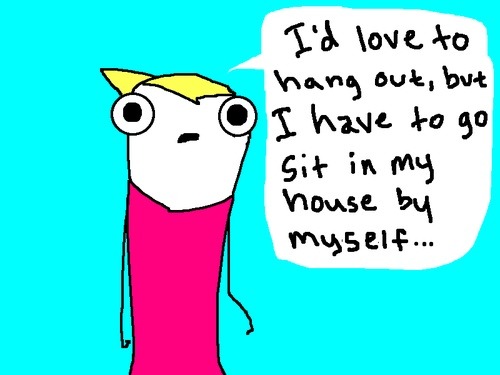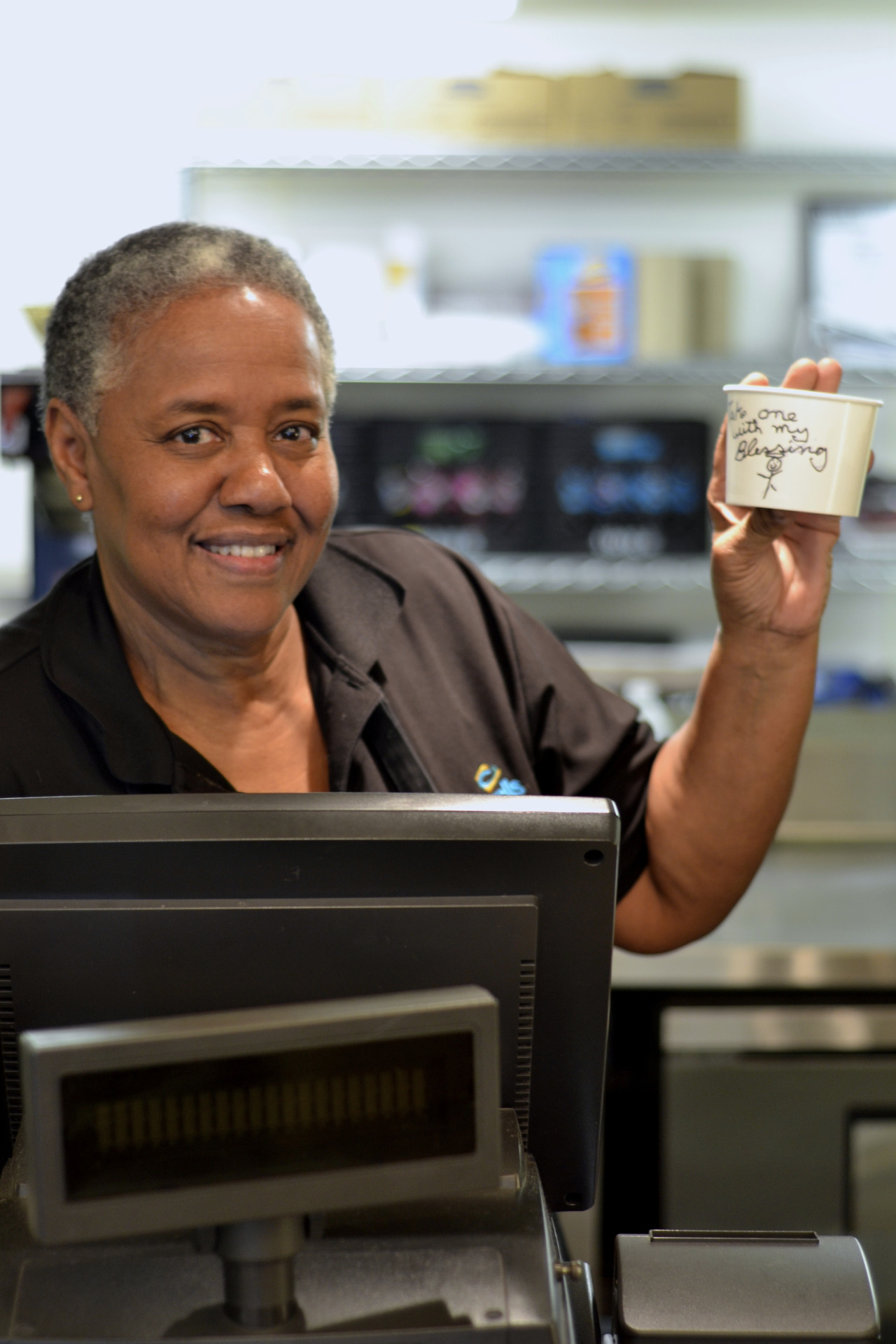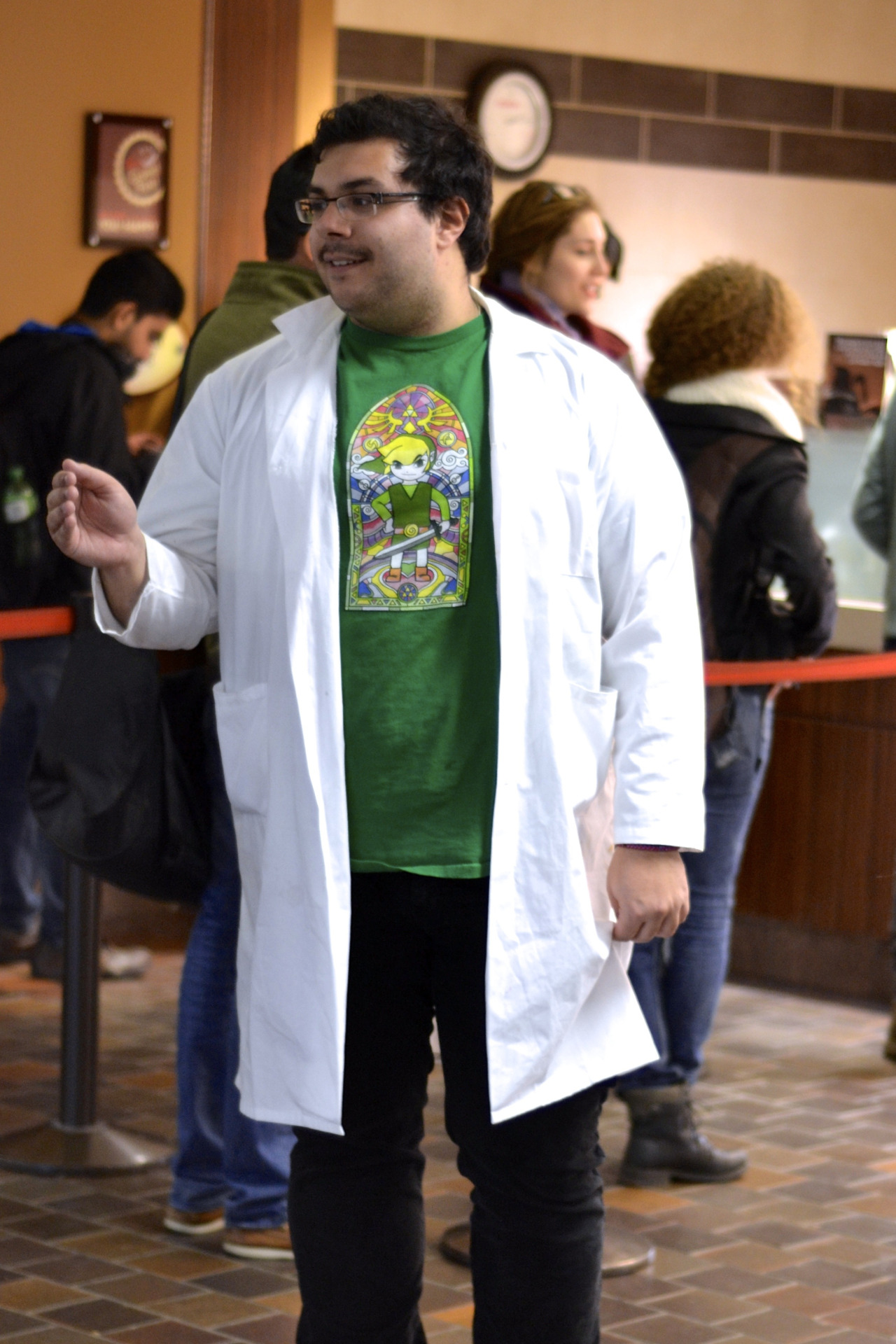It’s not easy being green… or, as it turns out, being an introvert while attending university. The world just isn’t made for those that are not comfortable with socializing or extending themselves outwards to others. I definitely fit the description of an introverted individual: I keep to myself a lot of the time, I’m quiet in social settings and I rarely add to discussions unless it’s about something that I feel very strongly about. It can be intimidating putting yourself out there, especially in university… but by doing so, you will learn more about yourself and the world around you than you ever have in your life. I’ll discuss three things that I’ve learned to overcome my introversion while studying at UTM for the past three months and I hope you can identify with at least a few of my observations, suggestions and opinions. They may seem obvious to you, but that’s the intention.
The first thing I’ve learned is that university life can be lonesome when you don’t incorporate social interactions into your routine. It’s vital to set aside time during the week for homework and studying, but also to engage in some form of person-to-person contact that is meaningful to you. It can be a club, a team or a volunteer opportunity; some activity that you enjoy and that forces you to work with others in a productive, fun way. After spending several evenings alone in my room and experiencing just how unsatisfying it can be, I resolved to discover activities that get me involved on campus; despite having less time to myself, I haven’t regretted that decision. Remember: “free time” doesn’t always have to be “me time”.
Another suggestion: get involved at UTM in whatever way that you can. This campus is where you will invest or have invested an incredible amount of time and money to obtain a higher education; make that decision and commitment you have made count! Join your program’s student society or a student government. Make your unique opinions heard. If a leadership position is not for you, help out at an organized event during the year; develop connections that will benefit you throughout your years here. Everyone has valuable opinions and ideas that deserve to be heard. You have the chance to improve UTM now and for generations of students to come, so get out there and do something about it. Your legacy awaits…
Finally: it never hurts to try something new, to get outside your comfort zone. This is the most important step to enjoying university life as an introvert and probably the most difficult. Introverts have the tendency to deny themselves the opportunity to try out things that they may be interested in, but exist outside their level of comfort. The only way you’ll overcome your shyness is to take the risk – if that risk isn’t too great, that is (I once wanted to play rugby… I am so glad my parents said “NO!”). Have faith in yourself and know that others have faith in you. You will discover something about yourself, guaranteed. Whether it’s beneficial or not, you will be much wiser moving forward. There is risk in everything that you do in life. Take advantage of your curiosity, because who doesn’t want to have an exciting life full of brave, new experiences?
These are only three of the things I’ve learned to do to that have helped me navigate and arguably succeed at UTM as an introvert. Use these suggestions to develop your own list of recommendations. The generations of undergraduate students to come will thank you for it!
Why is introversion still seen as something we need to “overcome”? The descriptions in this article made me feel like I was reading about someone who is shy and has low self-esteem. People are still ignorant about what introversion really is! The terms “introvert” and “shy” are used interchangeably in the article, which shows that the person doesn’t really know what introversion means. Introversion does not mean we are too scared to be around other people or too scared to socialize. It does not mean we are aliens around other people. It does not mean we do not “have faith in ourselves.” It simply means we need alone time to recharge. It also means (depending on the person) that we don’t like to engage in meaningless conversation. Introverts hate small talk, and that’s why we avoid talking to strangers in the first place unless we have something meaningful to say. Why does being an introvert mean we can’t have an exciting life? Why does “exciting” have to always be attached to other people? Why am I considered “lacking faith in myself” if I prefer to spend my Saturday night reading a good book instead of being at a party?
Indeed, it is not easy being an introvert in an extroverted world, especially in university. We are misunderstood and seen as depressed, “anti-social” (which I think any university student should know is a wrong choice of words), shy, weird, lacking self-confidence….
If you want to address the struggle of an introvert in university, please discuss the system in which most classes have at least 10-15% for participation in class, in which introverts struggle to have their voices heard because they do not function the same way extroverts do.
Why is intelligence associated with a louder voice?
I am an introvert, and I found this article insulting.
Different people function in different ways. Some people prefer being around lots of other people, while others prefer a smaller group. Some people are comfortable sharing their thoughts out loud, others prefer to keep to themselves. Some people like speaking what’s on their minds; others prefer writing it. Some people would choose to present in a classroom of 200 students; other prefer writing an essay.
Just because we are introverts doesn’t mean we do not have a social life. It means we are selectively social. And if being alone is unsatisfying, maybe this person is a shy extrovert? or an extrovert who lacks self-esteem? And according to our corrupt society standards, they are seen as “introverts.”
Thank you for your criticism. I am sorry that my blog made you feel insulted: that was not the intention. I agree with what you are saying; however, I was just voicing my own views and opinions on an issue that, believe it or not, I am very familiar with. I am introverted, perhaps not as much as I thought before reading your blog: I love to write, read and partake in quiet activities. That is not something I am ashamed of, and no one who is introverted should be either. However, it is my belief that society demands for introverted people to have their voice heard and to try new things, or else lose out on fulfilling opportunities that they would otherwise rarely experience ; a sad reality, no doubt, but it is just the society that we live in. I live in a household with a seriously introverted sister ; I observe the tremendous struggles she is forced to go through everyday for being socially anxious. It is difficult to see others take advantage of her because of her disposition, but it is clear that she would surely become more confident in herself if she became more involved at her university and talked to others who share her unique, and highly insightful views. Thank you for sharing your critical opinions and insight. They will be remembered and taken to heart.
Thanks.
Regards,
Darren









